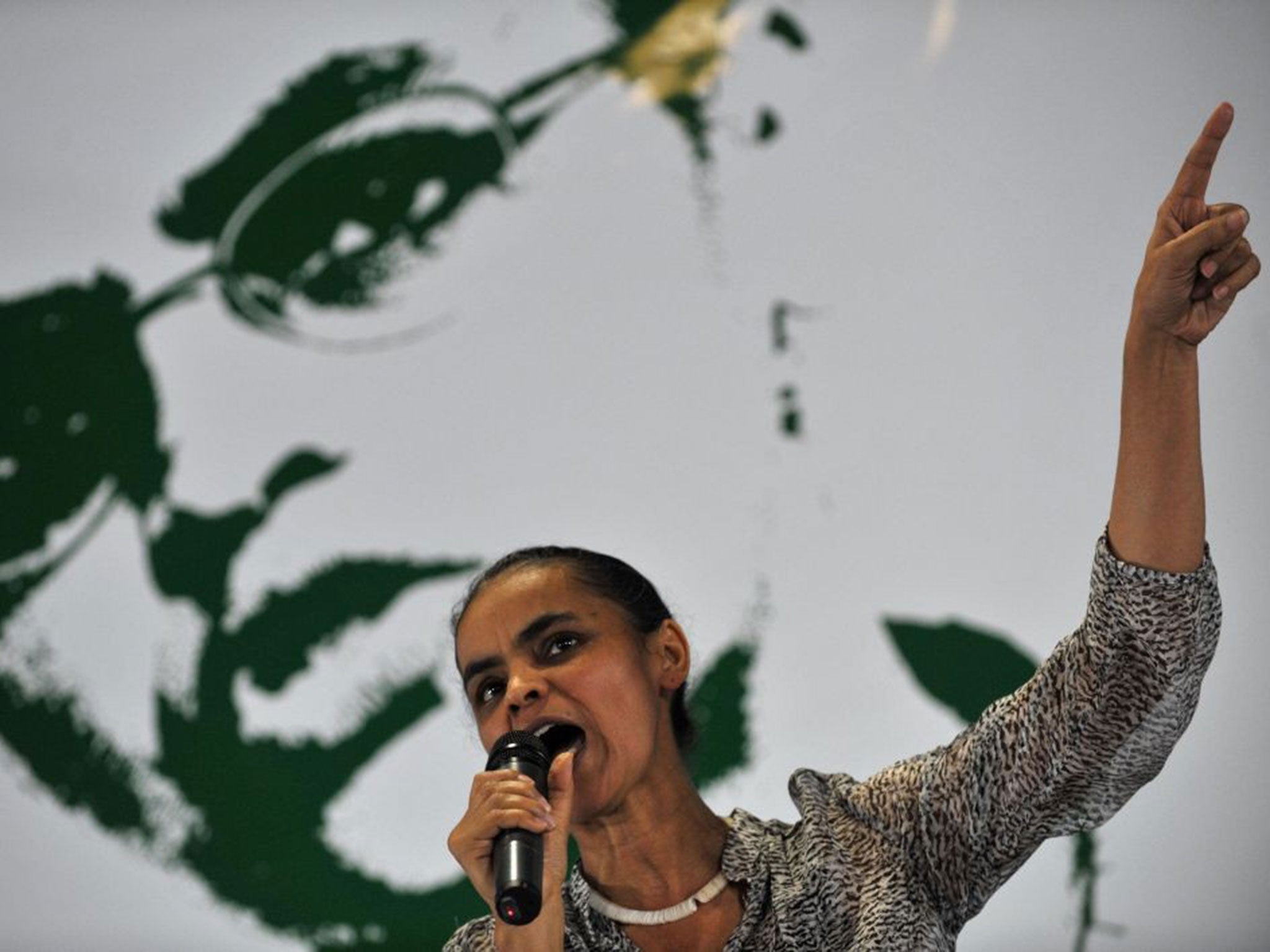Brazil's Marina Silva wants better US ties
Silva is a former Amazon activist, senator and environment minister who pushed policies that helped Brazil slash the rate at which it was destroying the jungle

Marina Silva, a front-running presidential candidate who grew up in the Amazon jungle and could become the first black to lead Brazil's government, said Wednesday that if elected she'll improve ties with the U.S. and strongly push for human rights in nations like Cuba.
She spoke exclusively to The Associated Press in her first interview with a foreign media outlet since being thrust into Brazil's presidential campaign after her Socialist Party's original candidate died in an Aug. 13 plane crash.
Silva, a former Amazon activist, senator and environment minister who pushed policies that helped Brazil slash the rate at which it was destroying the jungle, has found herself at the center of a suddenly hot presidential race pitting her against President Dilma Rousseff, with whom she's running in a dead heat in the latest polls. The incumbent represents the Workers Party, which Silva helped found three decades ago.
"Brazil has a great opportunity to become a global leader by leading by example," Silva said in talking about human rights and environmental protections. "Our values cannot be modified because of ideological or political reasons, or because of pure economic interest."
Pressed on whether she would continue Brazil's strong investment in and political support of regimes like Cuba, Venezuela, China and Iran, Silva said that dialogue is essential with each — but that her personal convictions means Brazil would be more vocal in pushing human rights.
"The best way to help the Cuban people is by understanding that they can make a transition from the current regime to democracy, and that we don't need to cut any type of relations," Silva said. "It's enough that we help through the diplomatic process, so that these (human rights) values are pursued."
Brazil's relationship with the U.S. has been chilly since revelations more than a year ago that the National Security Agency's espionage programs directly targeted Rousseff and other Brazilian officials. The NSA also swept up information on billions of phone calls and emails that traffic through Brazil, an important transit hub for trans-Atlantic fiber-optic cables.
After the revelation, Rousseff became one of the globe's most outspoken critics of the U.S. spy program and she cancelled her earlier acceptance of President Obama's invitation for a formal state visit — the first offered to a Brazilian leader in two decades and the first time in memory a foreign leader rejected the honor.
Silva said the U.S. spying was a grave error and it could never be tolerated by her, but she added that it is time to move on.
"Both nations need to improve this situation, to repair the ties of cooperation," she said. "The Brazilian government has the absolute right to not accept any such interference. But we also cannot simply remain frozen with this problem.
"We will have the will ... to rebuild the relationship," Silva added.
AP
Join our commenting forum
Join thought-provoking conversations, follow other Independent readers and see their replies
Comments
Bookmark popover
Removed from bookmarks